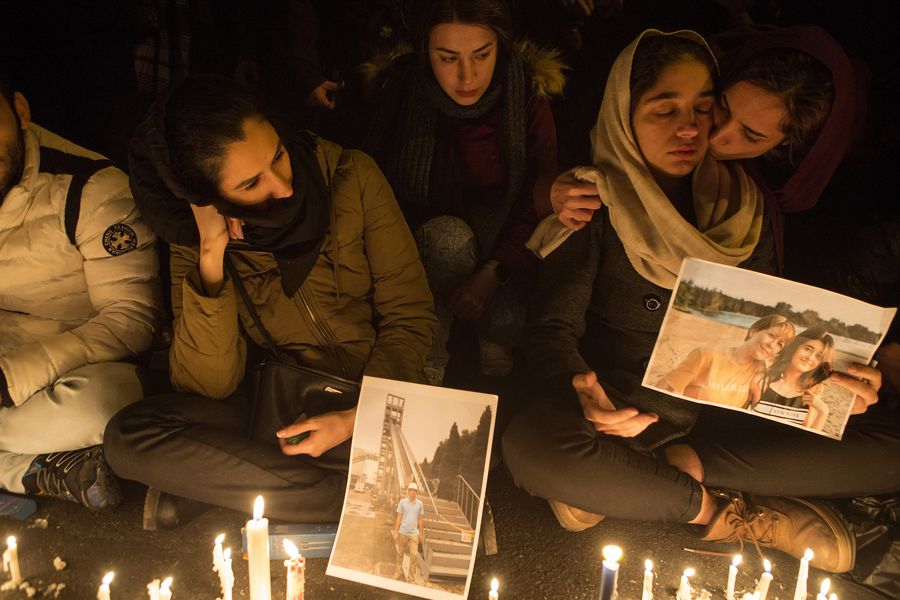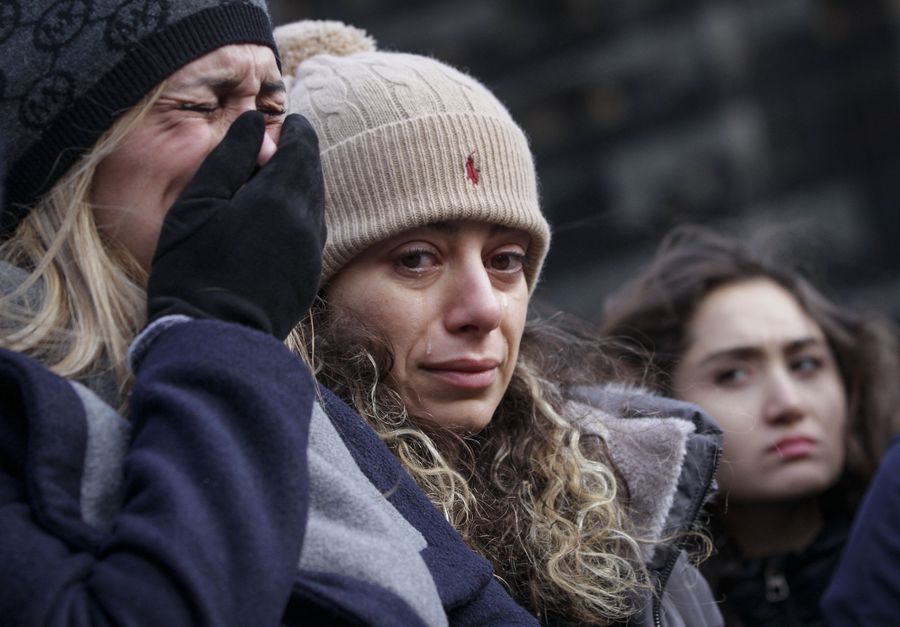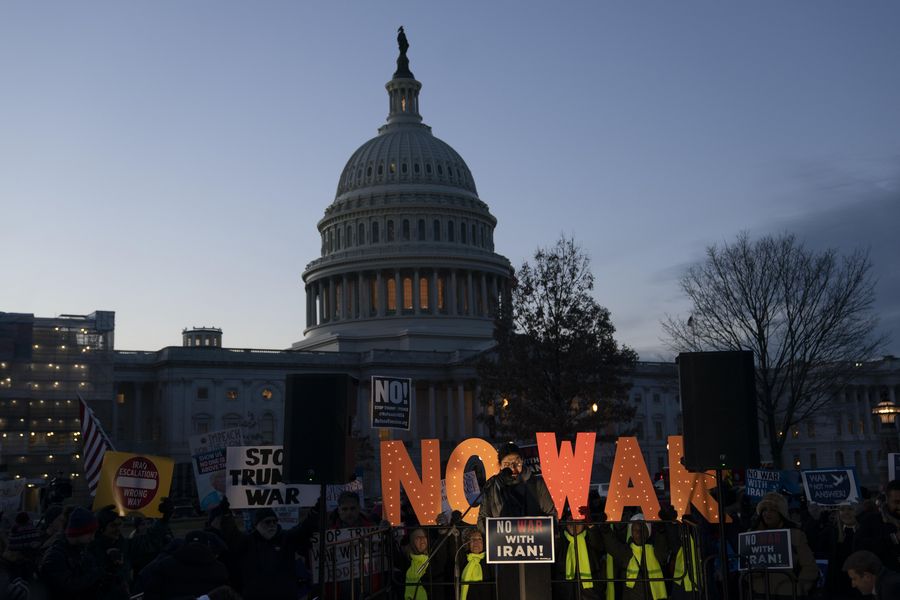
People mourn during the funeral ceremony of Iranian general Qassem Soleimani in Tehran, Iran, Jan. 6, 2020. (Photo by Ahmad Halabisaz/Xinhua)
At an open debate on upholding the United Nations (UN) Charter, UN Secretary-General Antonio Guterres lamented that this year began with fresh turmoil and long-standing suffering and geopolitical tensions reached "dangerous levels," most recently in the Gulf.
BEIJING, Jan. 12 (Xinhua) -- The international community has called for restraint and a de-escalation in the Middle East and the Gulf region amid rising U.S.-Iran tensions following the U.S. killing of a top Iranian general and ensuing Iranian attacks on U.S. military bases.
The situation was further complicated when Iran's state TV on Saturday quoted the Iranian military as saying that it "unintentionally" shot down the Ukrainian jetliner on Wednesday, in which all the 176 passengers and crew members on board were killed.
"This tragic accident only reinforces the importance of de-escalating tensions in the region. We can all see very clearly that further conflict will only lead to more loss and tragedy," British Prime Minister Boris Johnson said Saturday. "It is vital that all leaders now pursue a diplomatic way forward."
"Iran's admission that Ukraine International Airlines Flight 752 was shot down by mistake by its own armed forces is an important first step," Johnson said.

People attend a mourning ceremony for the victims of the Ukrainian plane crash, in Tehran, Iran, Jan. 11, 2020. (Photo by Ahmad Halabisaz/Xinhua)
"This will be an incredibly difficult time for all those families who lost loved ones in such tragic circumstances," said the British prime minister. "We will do everything we can to support the families of the four British victims and ensure they get the answers and closure they deserve."
"We now need a comprehensive, transparent and independent international investigation and the repatriation of those who died," Johnson said. "The Britain will work closely with Canada, Ukraine and our other international partners affected by this accident to ensure this happens."
Iranian President Hassan Rouhani said Saturday that the country welcomes any international cooperation concerning the plane crash, the official Islamic Republic News Agency reported.
"Iran welcomes any international cooperation within the framework of international regulations which is aimed at clarifying dimensions of the incident," Rouhani said in a telephone conversation with Canadian Prime Minister Justin Trudeau.
At a news conference on Saturday, Trudeau said that "a full and complete investigation must be conducted," adding that "we need full clarity on how such a horrific tragedy could have occurred."

A woman sheds tears at a vigil outside Vancouver Art Gallery for victims of the Ukrainian passenger plane crash in Vancouver, Canada, Jan. 11, 2020. (Photo by Liang Sen/Xinhua)
In another phone talk with Ukraine President Volodymyr Zelensky, Rouhani said that "all those involved in the air disaster will be brought to justice."
He said that the joint investigations between the Iranian and Ukrainian experts over the incident will continue and the judicial measures will "soon" start.
At an open debate on upholding the United Nations (UN) Charter, UN Secretary-General Antonio Guterres lamented that this year began with fresh turmoil and long-standing suffering and geopolitical tensions reached "dangerous levels," most recently in the Gulf.
China's Permanent Representative to the UN Zhang Jun said that as a cornerstone of multilateralism, the charter establishes the basic norms governing international relations in the present day, develops generally recognized principles of international law, and charts the way forward for society.
Ursula von der Leyen, president of the European Commission, called on Wednesday for dialogue instead of war in the Middle East, saying that "the use of weapons must stop now."

A rally against war with Iran is held outside the Capitol Hill in Washington D.C., the United States, Jan. 9, 2020. (Xinhua/Liu Jie)
Von der Leyen, head of the European Union's executive arm, also said that "we are called upon to do everything possible to rekindle talks," adding that "there cannot be enough of that."
Turkish President Recep Tayyip Erdogan and Russian President Vladimir Putin on Wednesday called for restraint and diplomacy to avoid "a new cycle of instability" in the Middle East.
In a joint statement issued following their meeting, the two leaders urged both the United States and Iran to act with restraint and prioritize diplomacy.
"The use of force does not contribute to finding solutions to complex problems in the Middle East, but would lead to a new cycle of instability," the statement said. ■



